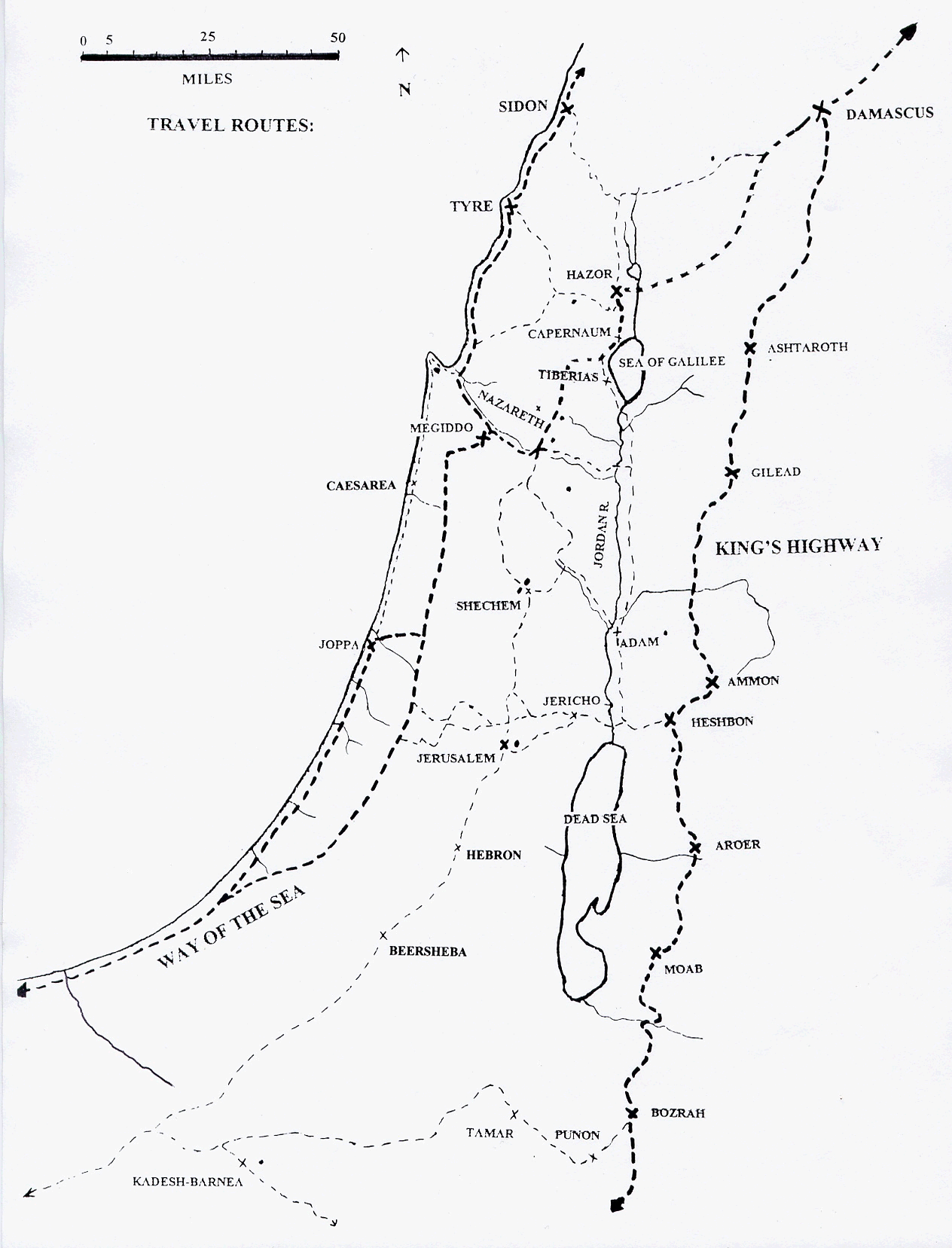27 – Festival of Weeks
Where: Nob, Judea
Scripture:
Notes:
Listen to audio
The celebration of the Festival of Weeks would be happening in Jerusalem on June 17. The Festival was also called Pentecost because it came fifty days following Passover. Also known as the Feast of Harvest, it was a one-day celebration at which two loaves of bread, made from the first wheat of the new harvest following the spring rains, were offered to God.
On Monday June 7, Jesus and his disciples left Galilee and journeyed south to Jerusalem. They arrived in Bethany,
Perea late on Thursday. On Friday they went up from Jericho to Jerusalem. They stayed over night on the hills north of Jerusalem, in the vicinity of the village of Nob, only two miles northeast of Jerusalem.
On Saturday morning, Jesus and his disciples stirred up a controversy when they walk through a wheat field near the town. The disciples picked and ate raw wheat for breakfast on their way to the town synagogue to celebrate the Sabbath. Some legalist thinkers saw them do it, and confronted Jesus as he approached the synagogue. It was not a matter of theft because taking grain from a neighbor’s field was allowed by law (under the condition that one did not “harvest” the grain, but rather just took a small amount to meet their immediate need).
The actions of the disciples caused a problem for the legalist, because to rub grain between your hands to remove the “husks” was considered work. In a life and death situation this was acceptable even on a Sabbath. But Jesus and his disciples were not starving and should not have “worked” (harvesting and threshing) on the Sabbath.
Jesus responded to the concern by indicating that it is also acceptable to meet basic needs on the Sabbath. ‘The Sabbath was made for man’, he said. ‘The law must now be balanced with love in order that there be true justice. Remember how David, here at Nob, was allowed to eat the bread that had been offered to God, which no one except the priests are supposed to eat? He was not starving. If David’s need was more important than that law’, said Jesus, ‘than maybe the Sabbath law is not as important as a person’s needs. God is less concerned with the law than with love for one another.’
A little while later they entered the Nob synagogue where Jesus encountered a man with a “withered” hand. The man’s life was not in any danger. The religious legalists said nothing when Jesus asked if it was acceptable to do a good work on the Sabbath. Instead they waited to see if Jesus would violate the letter of the law. The injustice of their mistaken priority, of holding “the Law” to be more important then love, angered Jesus. It frustrated Jesus that they were unable to be flexible in their thinking.
Jesus healed the man’s hand anyway. Jesus chose to push his point about the law and love. An animal that had fallen into a pit was not necessarily a life-threatening situation, but it was acceptable for the religious leaders to get the animals out. How much more acceptable would it be to help out one of God’s people? Not only did he contend that a person was allowed to meet their basic needs on the Sabbath, but they should be allowed to do a good “work” on the Sabbath also.
When Jesus had healed the hand, the religious leaders left the synagogue humiliated and angry, and sent a blistering report to their superiors recommending the death penalty for Jesus, for violation of the Sabbath laws.
DAB
No questions have been asked yet.

